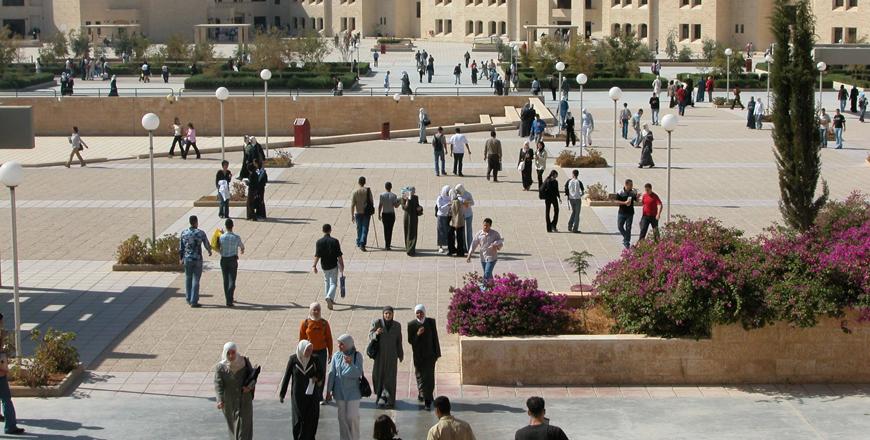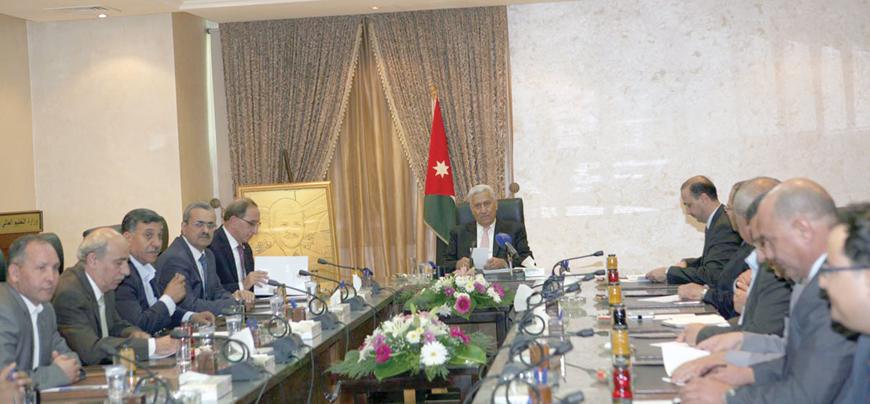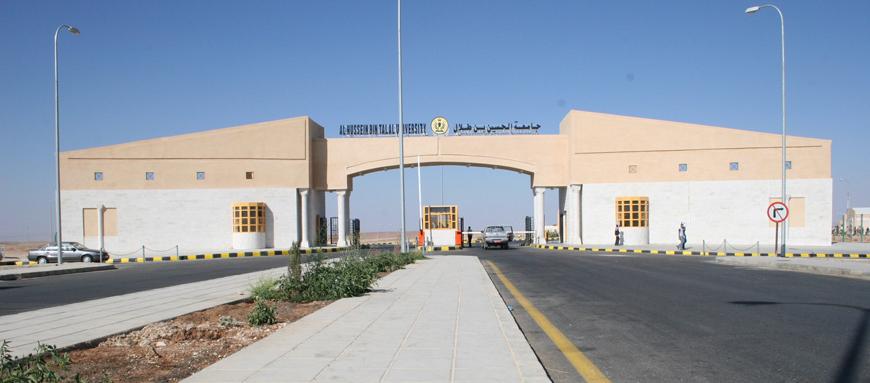You are here
Slight changes expected to minimum admission score at universities — minister
By Khetam Malkawi - Jul 29,2015 - Last updated at Jul 29,2015

The Zarqa-based Hashemite University is among the nine public universities that students apply to through the Unified Admission Committee (File photo)
AMMAN — The Higher Education Council (HEC) will meet on Sunday to discuss possible changes to the minimum admission score to the Kingdom’s public and private universities, Higher Education Minister Labib Khadra said Wednesday.
Khadra said the council will review the results of the General Secondary Education Certificate Examination (Tawjihi) that were announced on Tuesday, and based on that will decided the admission mechanism.
In an interview with The Jordan Times, the minister said although the council will not implement the proposal suggested last month of raising the minimum score for admission in public and private universities by 5 marks, the rates will not remain the same.
“There will be slight changes to the minimum admission score,” Khadra told The Jordan Times, noting that the rate will be announced following Sunday’s meeting.
Last month, the HEC decided to raise the minimum score for admission to public universities from 65 to 70 and at private universities from 60 to 65, starting with the 2015-2016 academic year.
But activists and lawmakers objected to the decision, prompting the government to refer the new admission criteria to the council for further examination.
Another HEC meeting will be held on Thursday where council members will meet with Education Minister Mohammad Thneibat and the secretary general of the Civil Service Bureau.
This meeting will discuss university specialties that are not in demand in the job market, with the aim of reducing the number of students accepted in them and to decide on the number of students to be admitted for the upcoming academic year in majors demanded by the labour market.
In addition, the minister said the final number of seats for the 2015-2016 academic year will be decided on Sunday.
Earlier this week, the Kingdom’s public universities said they can admit some 31,000 students for the next academic year. The number does not include students to be accepted at the German-Jordanian University (GJU), to which applications are directly submitted.
Exceptions
Exceptions at the Kingdom’s higher education institutions will not be “touched” especially the Royal makruma that allocates seats for children of military personnel and teachers, Khadra stressed.
He added that there have been recent news reports claiming that the ministry will review the makruma seats, “but this is baseless.”
However, the minister noted that the HEC will review the mechanism related to the exceptions allocated for “underprivileged” schools.
Khadra said that there are some schools in Amman equipped with very qualified teachers and the required facilities but are still classified as “underprivileged”, which "makes no sense".
Thus, he explained, the classification of these schools will be reviewed, as this exception should be given to schools in the badia and other remote areas where the quality of education still needs to be improved.
Law amendme nts
The minister also revealed that both the higher education and the universities laws are in the process of being amended to include developments in the sector.
One of the updates is concerned with the appointment of university presidents and another is related to the HEC.
Khadra said committees will be formed to evaluate a university president's performance and the improvements at the institute during his/her term to recommend renewing his/her term or not.
The current mechanism for appointing presidents for any of the Kingdom’s universities is through applications that are reviewed by the HEC.
One of the proposed modifications to the Higher Education Law is introducing an article that prevents a member of the HEC from applying for the presidency of any university while in office.
This proposal, according to Khadra, is to ensure transparency when nominating a university president or when filling any other administrative post.
Sino-Jordanian University
Meanwhile, the minister noted that the agreement to establish the planned Sino-Jordanian technical university is expected to be signed in September.
He explained that admission to this university will be through direct applications and students will study for five years, two of which will be in China with the Chinese government covering the cost.
The first year in China will be academic and the second will focus on practical training.
Until the premises of the planned university is ready to accept students, a temporary building will be allocated for it as of the 2016-2017 scholastic year, according to Khadra.
The minister also noted that the HEC welcomes any initiative by universities wishing to accept students in a certain subject outside the unified admission list, but the council cannot force universities to do that.
At present, only GJU accepts students outside the admission list. In addition, admission to the specialties of physical education and fine arts in other universities has to be by direct application and through competition.
Related Articles
AMMAN — The Higher Education Council (HEC) on Sunday decided to freeze a decision it adopted last month to raise the minimum admission rates
AMMAN — Prime Minister Abdullah Ensour on Thursday stressed the importance of safeguarding the accomplishments of the higher education secto
AMMAN — Higher Education Minister Labib Khadra on Thursday said 24,723 students have been accepted at public universities through the Unifie













